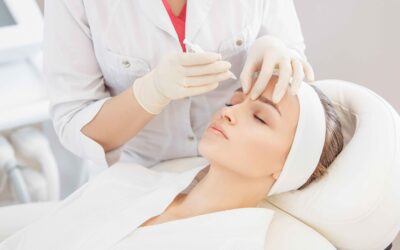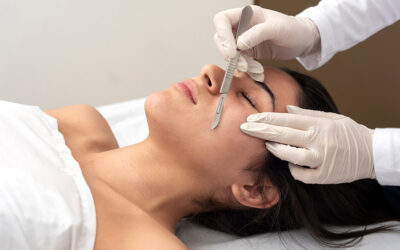Sunscreen is arguably the most important step in a skin care regimen. It should be applied (and reapplied) daily regardless of the extent of sun exposure. Most of the damage done to skin by the sun is accumulated over time by daily tasks we all complete, such as driving to work, walking the dog, and checking the mail. While it is also important to remember sunscreen when at the beach or spending an extended period of time outside, that is not the only time it should be used.
Sunscreen should become a part of your daily morning routine just like brushing your teeth and washing your face. It may seem like a tedious task, but the benefits far outweigh the slight inconvenience and extra two minutes it takes to apply. Skin cancer reports are on the rise and becoming more and more prevalent in the news today. Skin protection from the sun is not something to take lightly.
What Does SPF Mean?
SPF stands for sun protection factor and is a number that represents how long a person can stay out in the sun without getting a sunburn while using the product. An SPF of 30 or higher is recommended to ensure the most sun protection. SPF is only based on UVB protection (the burning rays). When looking for a sunscreen, it’s important to look for broad-spectrum. This indicates that the sunscreen protects from UVB and UVA (aging rays).
Does Sunscreen Expire?
Yes, sunscreen typically expires 3 years after it is opened (check the box or bottle it came in for the exact date), but you also have to take into account how it was stored. Sunscreen that is kept in really hot, or really cold, environments (like your car or beach bag) will start to break down and won’t provide its maximum protection. If you are unsure how long you’ve had a sunscreen or you are using one you’ve kept in an unstable environment for extended periods of time, it’s probably best to throw it away and invest in some new bottles.
Dr. Richards Recommends…
Here at TPD, we offer a physical, broad-spectrum sunscreen line called EltaMD. After a thorough skin evaluation, Dr. Richards and Christine Corso, PA-C will recommend the best product to suit each individual’s specific needs. They take into account skin type, skin conditions, amount of time spent outdoors, outdoor physical activities, and convenience. Call our office today to schedule an appointment to meet with Dr. Richards or Christine Corso and find the best sunscreen for you.
What’s the Difference Between the Sunscreen Dr. Richards Recommends and the Sunscreen I Can Get at the Drug Store?
The sunscreens offered at Torrey Pines Dermatology & Laser Center (EltaMD) are medical grade sunscreens that are only sold in physician offices. They are broad-spectrum and all contain high levels of zinc oxide. Sunscreens that include zinc oxide block the widest spectrum of UVA and UVB rays. Zinc oxide is a natural, mineral compound that maintains its protective ability in the sun. Although sunscreens you will find in the drug store are cheaper, they are not medical grade sunscreens and most do not contain zinc as an active ingredient.




